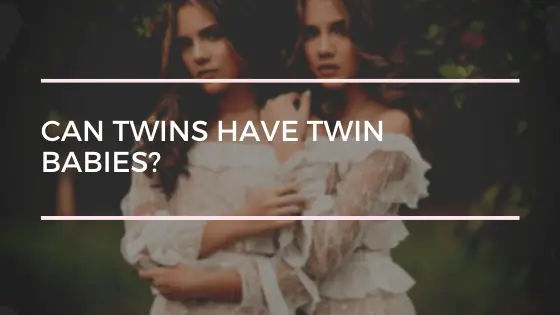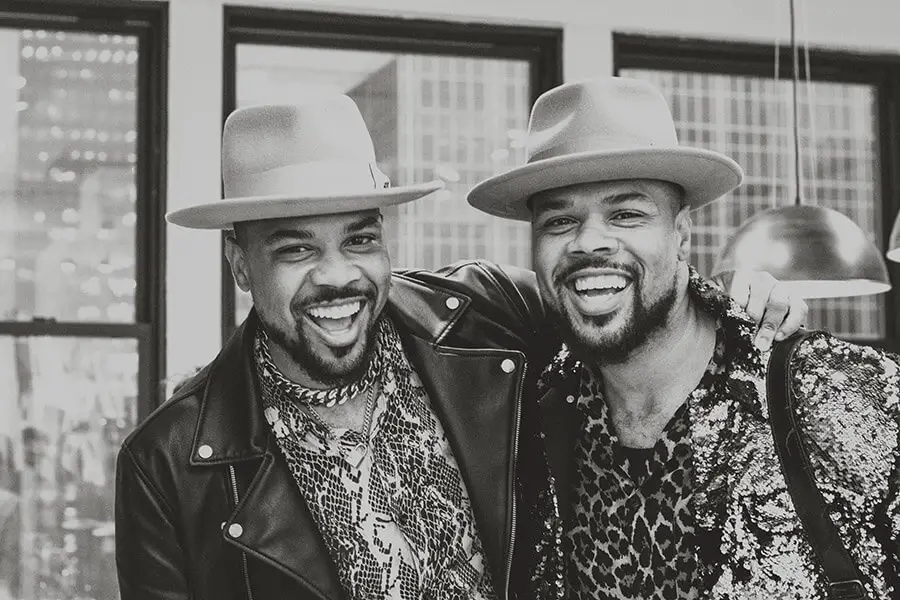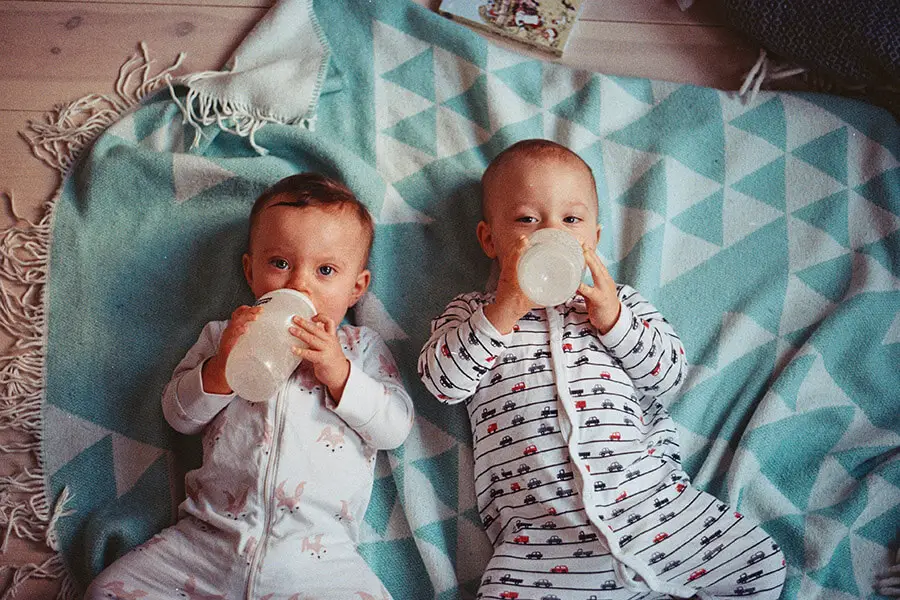Affiliate Disclosure – This post may contain affiliate links where we may receive compensation if you purchase products linked below. As an Amazon Associate, I can earn from qualifying purchases. This doesn’t cost you anything and helps keep our little blog running. Read our privacy policy for further information.
Are you the parents of twins and wondering whether you’ll be a grandparent to twins one day? Or perhaps what’s brought you here is just a fascination with twins and how they reproduce. This article explores the topic do twins have twins, the frequency of twins having twins and helping build an understanding of the different twins out there.
What are the Different Types of Twins?
Before we answer the question to whether twins can have twin babies of their own, it’s important to touch on the different types of twins that exist and how this plays a part in the reproduction of twins. We’ve written about the topics of how twins run in the family, whether twins can be left and right handed and how rare twin babies are. But what are the different types of twins out there?
There’s two types of twins that exist. These are:
 Identical Twins or Monozygotic Twins
Identical Twins or Monozygotic Twins
Identical twins are your quintessential twins that most people are familiar with. Identical twins form when a fertilised egg that’s fertilised by a single sperm cell is split into two.
When someone has monozygotic twins this means they are identical twins of the same sex. According to the U.S National Library of Medicine, identical twins are thought to run randomly in family and does not run in families through genetics like fraternal twins. It’s thought that environmental factors like the mothers age, race and other factors play a larger role than genetics.
Fraternal twins or Dizygotic Twins
Fraternal twins are the more common type of twins and are no different to giving birth to siblings being born years apart. This is due to the twins not sharing the same DNA like identical twins and are physically different in appearance. Fraternal twins occur when there are two separate eggs which are fertilised by two separate sperm cells.
With fraternal twins you can have either two girls, two boys or boy and a girl combinations. As they share the same genetics, they are often visually similar however aren’t identical.
Hyperovulation and Dizygotic Twins – Understanding How Twins Run in Families
It’s thought that dizygotic twins occur as a result of hyperovulation which is where more than one egg is released in a single menstrual cycle. When people talk about twins running in the family, this generally means that there is a stronger chance of hyperovulating occuring and increasing the chance of bearing twins. It’s once these multiple eggs are fertilised by multiple sperm cells that you see twins.
Can Twins Have Twins?
What is the significance of the two different types of twins you ask? Let’s explore this in greater detail.
Can Fraternal Twins Have Twins?
Most definitely.
Fraternal twins or dizygotic twins have a high chance of having twins due to carrying a hyperovulation gene which we discussed earlier in the post. However your chances of having twins isn’t limited to just carrying a hyperovulation gene and can also include environmental factors including: age, race, height and weight.
Are you guaranteed to have twins if you’re a fraternal twin? Not necessarily. Your odds are only increased and there’s still a strong chance you may just have a singleton pregnancy.
 Can Identical Twins Have Twins?
Can Identical Twins Have Twins?
According to the NHS, it’s thought that there is no evidence that identical twins run in families. However with that said, a woman is more likely to experience having twins if there are twins that run in her side of the family.
With identical twins occuring about 1 in 250 pregnancies in Australia, the chance of identical twins having identical twins remains low however is possible.
Can Male Twin Have Twins?
It’s thought that male twins are silent carriers of the gene and it’s only when their children have children in the future that they are likely to reproduce twins. For example:
- Frank and Jack are two twin boys. This is the first generation where twins are born.
- Frank goes off and marries Jane who has no family history of twins. They have a daughter Emma. This is the second generation where no twins are born.
- As Emma grows older she marries Sam who she has twin babies with. This is the third generation where twins are born.
As you can see in the above example, Frank is born with the twin gene however because he is the silent carrier of the twin gene, it is only when he has children himself that he then passes the gene on to his daughter Emma.
Can IVF Twins Have Twins?
Short answer – Yes.
In vitro fertilisation (IVF) is an assisted reproductive technique where medical professionals use medical intervention to help a family conceive. During the process, multiple embryos are placed in the woman’s uterus to increase the chances of conceiving. As a result of multiple embryos being embedded, this increases the chance of having twins and why some parents who use IVF conceive twins.
While IVF twins may be conceived differently to naturally conceived twins, they bare no difference to normal twins once born. For this reason, IVF twins, in particular, fraternal based IVF twins, have the same likelihood of having twins themselves.
Summary / Closing
If you’re made it this far, thanks for reading and we hope this article has been helpful for you.
In summary:
- Twins have a high chance of reproducing twins thanks to the hyperovulation gene which causes two eggs to form.
- Male twins are silent carriers of the twin gene and it’s only when they have a daughter who then goes on to have a child that you may see the twin gene reproduce again.
- IVF twins are just as likely to have twins as normal twins do
Thanks for reading!
Affiliate Disclosure – This post may contain affiliate links where we may receive compensation if you purchase products linked below. As an Amazon Associate, I can earn from qualifying purchases. This doesn’t cost you anything and helps keep our little blog running. Read our privacy policy for further information.

My name’s Alex and I’m a husband, dad to beautiful identical twin boys, cyclist, photographer and connoisseur of great coffee!
Help I’m Having Twins has been created for me to share what I found useful as a new parent and dad to twins.




